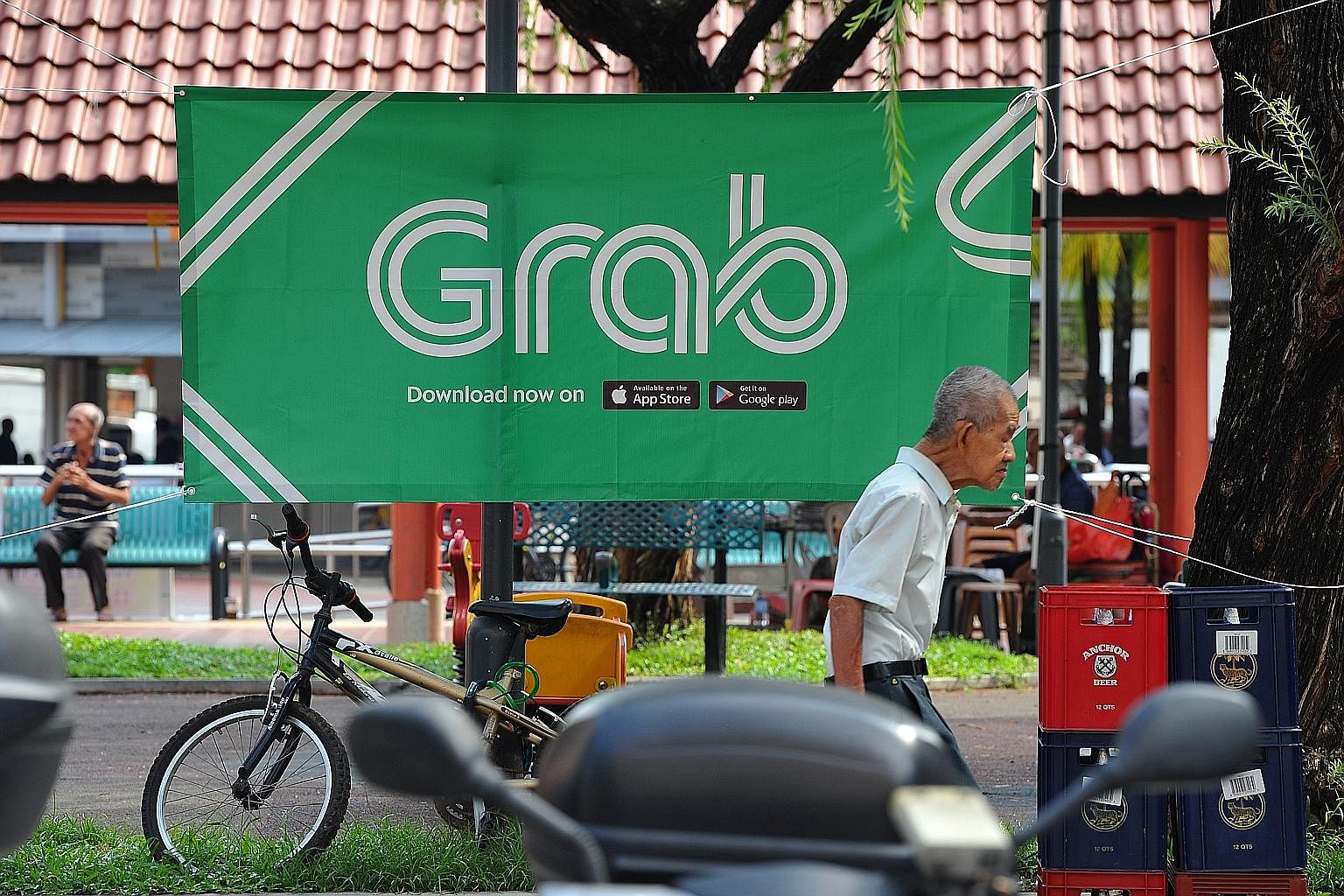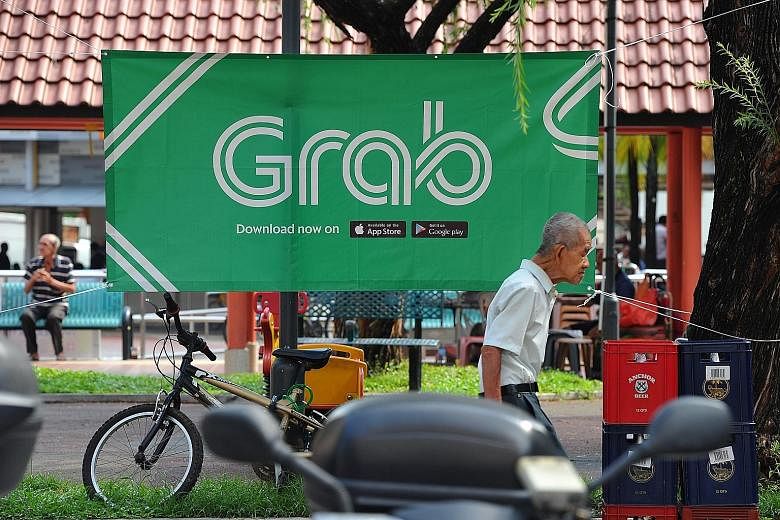The Committee on the Future Economy (CFE) has been deliberating for the past eight months on developing economic strategies to position Singapore well for the future. Close attention should be paid to the report due by the end of the year, given that the recommendations will shape how Singapore competes in the global economy in the next five to 10 years.
Six years ago, the Economic Strategies Committee (ESC) was formed to sustain Singapore's development and to ensure inclusive growth. The final recommendations emphasised the need to invest significantly in our people, and the need to restructure our economy to drive higher productivity.
SkillsFuture is a significant outcome from the ESC,where we ramp up investment in education across the working life of a Singaporean, rather than just the 10 to 15 years of formal education. SkillsFuture will develop the culture of lifelong learning, enabling workers to adapt dynamically to economic change.
However, in the past few years, the growth of major economies has been more uncertain, with accelerating disruptions driven by widespread commercialisation of technological capabilities due to ubiquitous broadband Internet access and connected devices.
Many companies are furiously innovating to disrupt their profitable business models, such as Facebook investing in virtual reality, Amazon in artificial intelligence and Google in self-driving cars.
Governments are also reinventing the structure of their economies. China is shifting from an export-focused economy using foreign technologies to a consumer-driven and innovation-led one fuelled by innovative services and products from Chinese technological leaders such as Baidu, Alibaba and Tencent.

Our Asean neighbours are doubling down on growing innovation capabilities, leveraging their increasing educated population and greater foreign investment as production shifts away from higher labour costs in China. Their efforts are paying off. Samsung just announced its plan to build a regional R&D hub in Vietnam. Apple is building an R&D centre for its iPhone product in Indonesia.
Given the accelerated disruption with surrounding countries investing in building innovation capabilities, the CFE should consider two themes to underpin its recommendations to best prepare Singapore's economy for the future.
DISRUPT POLICIES AND NORMS
The first theme is that the Government has to transform or disrupt its policy formulation and implementation norms. Regulators have to adopt an innovative stance to facilitate industry disruption in order to support the growth of new industry sectors.
Uber or Airbnb employ technological capabilities like real-time feedback and dynamic pricing to mitigate risks and provide more benefits, taking customers away from taxi and hotel operators. Regulators have to take into account considerations of incumbents, who have to operate within existing guidelines, but still exhibit flexibility to allow new companies with disruptive technologies and business models to flourish.
Therefore, it is encouraging that regulatory agencies, such as the Monetary Authority of Singapore, are willing to relax some regulations within set parameters to enable development of fintech innovation that will benefit end users. Other regulatory agencies have to embark on this systematic shift.
At the National Day Rally on Sunday night, I was heartened to hear Prime Minister Lee Hsien Loong say that the Government will look further and refine rules governing ride-sharing apps like Uber and Grab. In fact, as he noted, even disrupters like Uber and Grab will find themselves disrupted - when driverless cars hit the road, as they will when Singapore pilots a driverless taxi service next year in one-north.
Another key change Singapore should consider is in intellectual property assignment.
Our public research institutions should consider ownership transfer of intellectual property (IP) versus licensing when companies co-invest in research and development (R&D). Currently, our research institutions practise the global norm of licensing, as government funds are used even when companies contribute equal or greater funding to the R&D efforts.
We have to consider how changing from licensing to an ownership approach will speed up IP creation and commercialisation rates which attract capital and create jobs. Companies will be more willing to co-invest with our public research institutions if they can own the IP through a fair and equitable framework.
DEVELOP CAPABILITIES OF SMEs
The second theme should be the relentless drive to develop our small and medium-sized enterprises' (SMEs') innovation capabilities.
We have grown our economy and capabilities through symbiotic partnership with multinational corporations (MNCs) over the years. However, MNCs choose their locations based on economic considerations, unlike many SMEs owned by Singaporeans which stay in Singapore through the highs and lows of our economy. Recently, container carrier Maersk Line announced its plan to move its Asia headquarters from Singapore to Hong Kong.
Our government procurement process can help grow our SMEs' innovation capabilities by giving them preference for innovative projects. This change will be hard, given our commitment to free- trade agreements and norm to award tenders regardless of nationality.
Temasek-linked companies (TLC) can also play a role by prioritising SMEs as partners in overseas expansion, where the SMEs can learn new ways of doing things. The public has to be more willing to tolerate potentially lower returns when our TLCs give preferences to SMEs which may not always be the most cost-effective suppliers.
The Government has to make big bets on a number of Singapore medium-sized enterprises to help them to grow wings and deepen roots to entrench local innovation capabilities.
The Government also has to pick promising Singapore enterprises to grow their wings by supporting the development of their capabilities to sustain international growth, while deepening their roots through the right incentive structure to keep these enterprises' corporate and research and development capabilities in Singapore.
The public has to be more tolerant of some failures in these big bets as not all chosen enterprises will succeed. Many blamed the US government's multimillion-dollar loan in 2009 to Solyndra, a start-up solar panel manufacturer which went bankrupt in 2011, but gave little credit to another multimillion-dollar loan, at the same time, to Tesla, which helped it to grow successfully.
Our decisions to build a more cautious regulatory stance and incorporating capabilities from MNCs were right for the past but not necessarily for the future. Economies are being disrupted at a faster rate every day and we have to disrupt our ways of doing things to strengthen our own innovation capabilities within Singapore enterprises. Only with home- grown capabilities can we adapt quickly to compete and to ensure progress for all Singaporeans.
•Soon Sze Meng, vice-president of marketing for a global company, is a member of the SME sub-committee of the Committee on the Future Economy.

